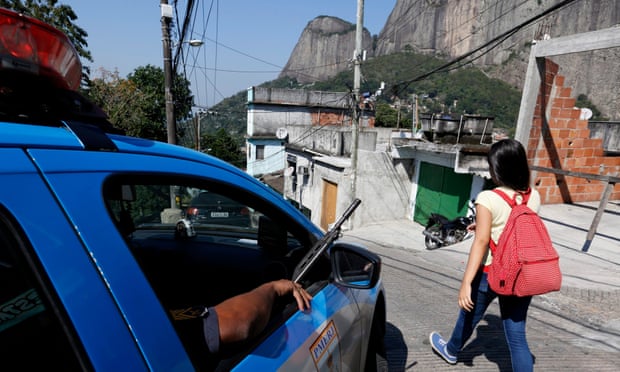Brazil Police killings of favela residents continue as Games go on in Rio
While much of the world’s media has focused on US swimmer Ryan Lochte’s fabricated account of an armed robbery, the real victims of Olympic crime in Rio de Janeiro are the city’s poorest residents, caught on the frontline of conflict between the authorities and drug traffickers.
Since the start of the Olympics, local media have reported at least 14 deaths in shootouts between gang members and police or soldiers from the 85,000-member security force deployed for the Games.
While such high levels of violence have long been a fact of life in favela communities, many residents feel the situation has been made worse by the high-profile mega-event that has focused police on protecting rich foreign visitors and targeting poor local residents.
‘The city should not be this way’: fears over violence in Rio with Olympics near
Certainly, the heightened tension of the Games has led to at least one fatal mistake with devastating repercussions.
Helio Andrade, a state trooper from the distant state of Roraima, was shot dead on 12 August after he mistakenly drove into Vila de João, a gang-controlled neighbourhood in the Complexo do Maré favela. As a soldier on Olympic duty, his death was cause for interim president Michel Temer to declare national mourning and for flags outside the Games venues to fly at half-mast.
As is often the case in Rio, it also prompted the police to launch an extensive and punitive hunt for the killers. At least five residents of Maré were killed in the operations, though the suspects have yet to be apprehended. Images of the area in the local media show that it came under a state of semi-siege, with police helicopters flying overhead and homes raided by heavily armed military police.
The day before the Guardian visited the community, two people had been shot in the latest police action, according to local residents, who said they were woken up on many days by the sound of helicopters buzzing close overhead. “It’s horribly loud,” said Bruno Rodrigues, who, like many local people, asked to be identified with a pseudonym for fear of repercussions. “Everyone in the community is afraid when they hear that as it means an operation is about to start.”
Unlike many other favelas in Rio, Vila de João has never been “pacified” by police. On one street stands a gangster from the Terceiro Comando Puro, or Pure Third Command faction, one of Maré’s biggest drug trafficking gangs, with a semiautomatic rifle slung around his neck and a handgun jammed into the top of his trousers. Further along, there are lookouts carrying walkie talkies./ShikoNews
Subscribe to:
Post Comments (Atom)

No comments:
Post a Comment